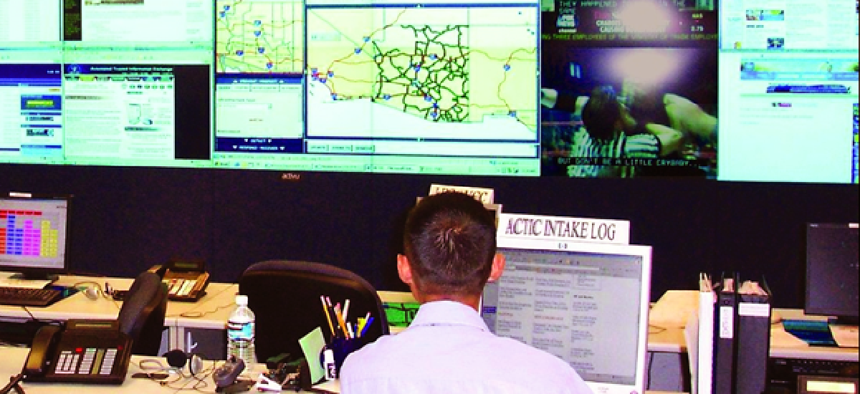Road to threat information access still uphill for local officials


Connecting state and local government leaders
Fusion centers and local law enforcement communities still face challenges accessing decentralized databases and classified data.
Even with improved sharing of federal, state and local threat information, local law enforcement agencies still have difficulty accessing decentralized databases and classified data.
“Right now, several fusion centers are unable to access criminal justice information databases through Criminal Justice Information Services,” Mike Sena, president of the National Fusion Center Association (NFCA) said in testimony before a hearing of the House Homeland Security Committee’s Counterterrorism and Intelligence Subcommittee. The subcommittee met Sept. 8 in Washington, D.C., to discuss “State and Local Perspectives on Federal Information Sharing.”
Fusion centers bring together law enforcement, public safety, fire service, emergency response, public health and the private sector to add local context to federal intelligence, Sena said. They are at “the forefront of removing barriers, developing better pathways, and maintaining relationships that help information analysis and sharing happen faster,” he said.
Fusion centers have played major roles in recent investigations of terror attacks and criminal activity. For example, after the shootings in San Bernardino, Calif., JRIC analysts developed intelligence on suspects and shared it directly with the San Bernardino Police Department, San Bernardino Sheriff's Office and the FBI.
Some of the important information came from residents who called the FBI and the local police. Liaison officers were able to forward those reports to fusion centers, where analysts provided local context to the information and shared the data with the FBI using eGuardian, the FBI’s information sharing platform.
Intergovernmental Information sharing has been a concern for some time. When the same subcommittee met in February 2015, it discussed ways of providing fusion centers with greater access to FBI terrorism-related data, some of which have become legislative proposals that passed the House late last year and are pending before the Senate, Subcommittee Chairman Peter T. King (R-NY) said in his testimony.
However, gaps still exist. Sena said he believes more should be done to develop a stronger network between partners at all levels of government to make sure criminal intelligence data is accessible for analysis and sharing.
“I’m very concerned that some of our federally funded programs whose mission clearly includes providing investigative support cannot get access to data that is fundamental to good analytical work,” Sena said.
The NFCA has been working with the FBI to resolve some of these issues. The Cyber Intelligence Network is a newer network, with more than 250 federal, state and local law enforcement cybersecurity analysts working on cybercrimes. They act as a “Virtual Fusion Center” and use the Homeland Security Information Network’s cloud service to share real-time cyber threat information.
Cedric Alexander, deputy chief operating officer for public safety in DeKalb County, Ga., has similar concerns about gaps in information sharing. In his testimony, Alexander noted that fusion centers are working to bridge the gap, but much of the information resides in separate websites, software and databases.
According to Alexander, this is partially due to agencies using different third-party systems that don’t integrate with one another. These intelligence information systems, analytical tools and databases must be interoperable, he said, creating a “one-stop site” and dashboard so the intelligence community can more efficiently access, analyze and share data.
This kind of system would also require a declassification of certain materials and the institution of a clearance level for local officials, both of which would improve the flow of information, Alexander said.
Yet merging processes remains at the heart of effective information sharing. “We’ve got to move away from personality-based operations to a standard function [in how] we do business,” Sena said. “You have a duty as a fusion center to get that information out to those people in the field.”
NEXT STORY: Lessons from the OPM breach




